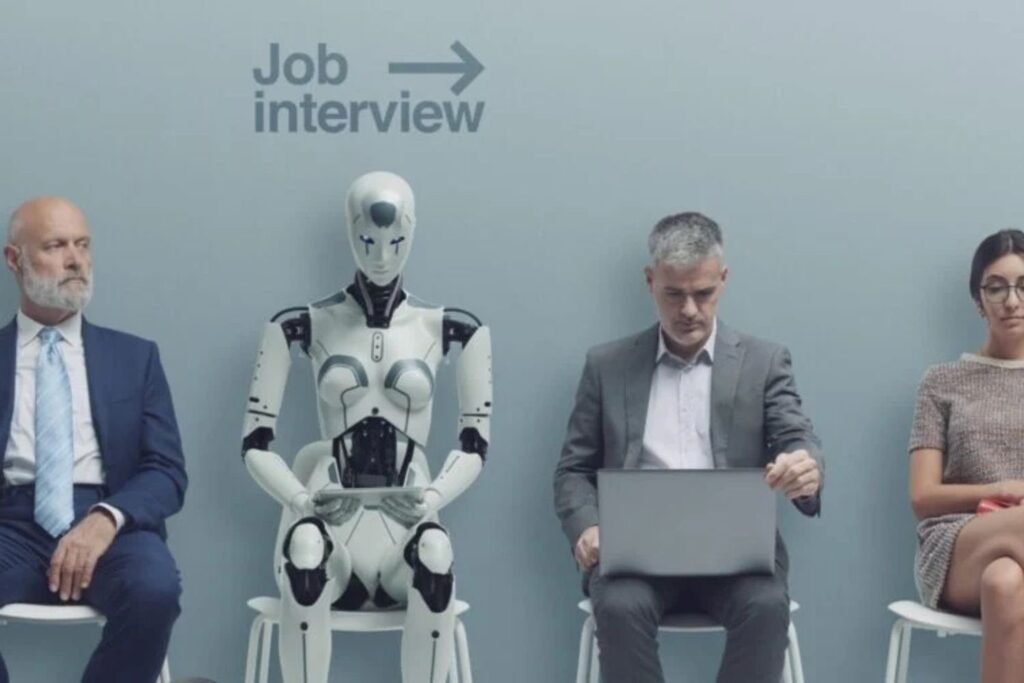CEOs reveal the truth in secret: AI is definitively replacing us

Fear is real. In meetings, Slack chats, and after-work conversations, a question haunts millions of employees: Will artificial intelligence take my job? Publicly, CEOs try to sound reassuring. They say that generative AI will serve to “improve productivity” or “optimize operations.” But if you look closely at what they really communicate to their employees or what leaks out in messages to investors, the message is chilling: virtual workers are already here, and they are not coming just as assistants. They are coming as replacements.
Let’s take a closer look at what some of the most powerful CEOs in the tech world are saying. Not in promotional videos, but in internal messages, official publications, and updates for investors.
1. Andy Jassy, from Amazon: “We will need fewer people”
CEO of Amazon, Andy Jassy, recently sent a message to the entire company that sounds reasonable, until you read it carefully:
“With the deployment of more generative AI and agents, it will change the way we work. We will need fewer people doing some of the current jobs… We expect this to reduce our total corporate workforce as we gain efficiency improvements by using AI extensively throughout the company.”
The key phrase: “in the coming years.” That is, between 2026 and 2028. Not within a decade. This is imminent.
Jassy is not just talking about automating simple or repetitive tasks. He is preparing employees for a scenario where AI replaces entire categories of employment, and where hiring slows down or stops altogether for functions that machines can already perform.
2. Luis von Ahn, from Duolingo: “There will only be hiring if AI cannot do the job”
In a memo on LinkedIn, the CEO of Duolingo was even more direct:
“Most areas will have specific initiatives to radically transform how they work… Personnel will only be assigned if a team cannot further automate its work.”
Translation: there will be no hiring unless it is impossible for AI to do that job.
The company’s bet is that most teams will need fewer humans very soon.
3. Tobi Lütke, from Shopify: Why can’t AI do it?
Shopify’s CEO expressed a similar directive on X (formerly Twitter):
“Before asking for more staff or resources, teams must demonstrate why they cannot achieve their goals using AI… How would this area look if AI autonomous agents were already part of the team?”
Lütke openly asks managers to imagine their teams as if AI were already integrated, and justify why humans are still needed.
The message from these leaders is clear: human employees are now the last option. The new norm is automation. CEO of Salesforce, Marc Benioff, recently said that AI already does 50% of the work in his company, shortly before announcing another 1,000 layoffs. In turn, the CEO of Klarna revealed that AI has already allowed a 40% reduction in its workforce.
The reality: virtual workers already exist
We are not talking about future scenarios. This is already happening.
The reason for this sudden change is the rapid evolution of AI technology. As explained by Sam Altman, CEO of OpenAI, in a recent podcast, the latest “reasoning models” have taken a critical leap. In simple terms, these AIs are no longer just searching for information: they can now “think” and solve complex multi-step problems. Altman suggested that these AIs reason at the level of a person with a doctorate, which means they can now perform advanced analytical tasks that were previously reserved for highly skilled professionals.
Three sources working in AI labs told Gizmodo that they are training models to perform real tasks in almost every “knowledge work” profession, such as banking, financial analysis, insurance, law, and even journalism. These individuals, who requested anonymity due to confidentiality agreements, explained how they compare their work with that of AIs to refine the technology until it can generate professional-level results with minimal errors.
Virtual employees are already doing our jobs. The current stage is simply to perfect them.
The “coming years” Jassy was talking about could actually be just a couple of years.
Layoffs are accelerating
Let’s look at the layoff numbers in the tech industry: in 2024, 551 tech companies laid off nearly 152,922 employees, according to data from Layoff.fyi. In just the first six months of 2025, 63,823 layoffs have already been recorded in 151 tech companies. The average per company in 2024 was 277 layoffs. If the current trend continues, that average for 2025 would rise to 851 layoffs per company, almost triple.
While there is no direct evidence that all of these layoffs are due to AI, the trend is occurring in a context of record economic strength. The Nasdaq closed at all-time highs and eight of the top ten largest companies in the world belong to the tech sector. Profitable and expanding companies are reducing staff at an alarming rate, and the silent implementation of AI seems to be the most logical explanation.
### Our Conclusion
CEOs of tech companies won’t tell you directly that you’re going to be replaced. But their memos say it all.
AI is already here, and chances are your company is mapping out a roadmap to automate your position. One internal pilot project at a time. One chatbot at a time. One hiring freeze at a time.
If you want to understand the future of employment, don’t listen to motivational speeches. Read the fine print on CEOs’ blogs. Because there they are already telling you the truth.




